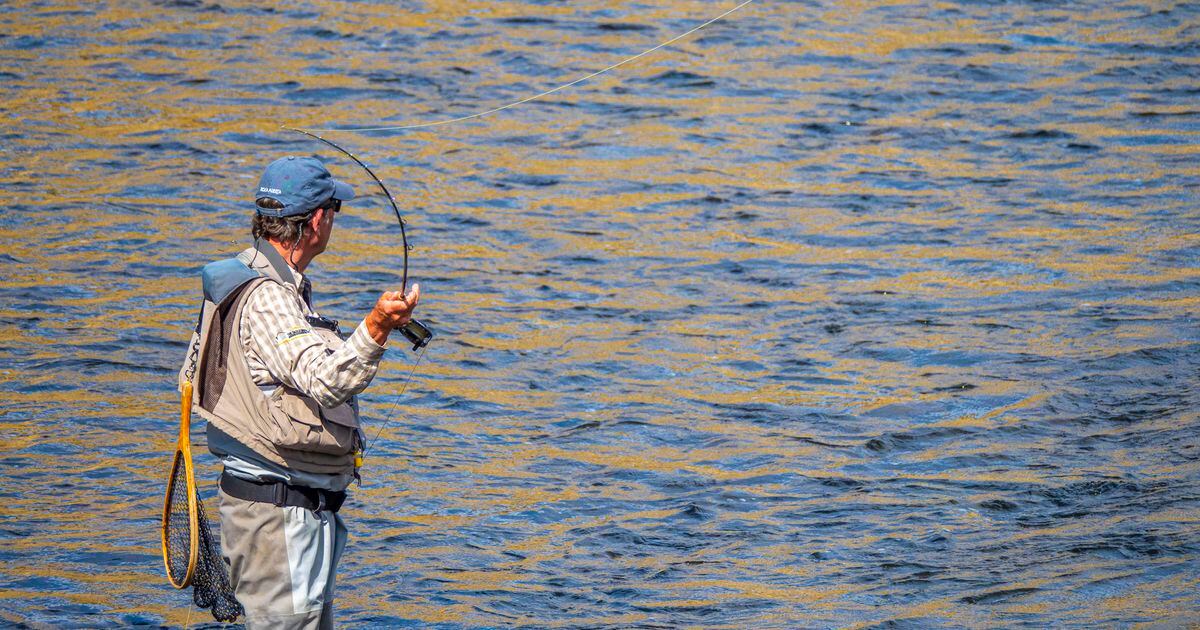
GREENCASTLE, Ind. — Indiana waters are home to a variety of healthy, delicious fish. Planning to catch, cook and eat them starts before you set sail.
Start by asking if you have the right equipment and know-how to catch and clean the fish. You’ll need a sharp filet knife and a cooler to keep fish cool.
“You’ll also want to check the water quality and the fish consumption safety guidelines for the waters you’re fishing in,” said Abbi Sampson, Purdue Extension educator in Putnam County, during a webinar. “It’s your responsibility to check those guidelines.”
When selecting which fish to eat, avoid those with loose scales, sunken eyes, discolored skin and white, bloody, or slimy gills.
The size and species of a fish can impact how much mercury you are exposed to.
Check the Indiana Fish Consumption Advisory at www.in.gov/isdh/23650.htm before eating local fish, and FDA/EPA Advice about Eating Fish at www.epa.gov/fish-tech/epa-fda-advice-about-eating-fish-and-shellfish to reduce exposure to contaminants, Sampson recommended.
When you’re ready to cook, remember to clean, separate, cook and chill.
Clean: wash hands and surfaces often.
Separate: separate raw meat from other foods.
Cook: cook to the right temperature.
Chill: refrigerate food properly.
Contaminants can be reduced by removing the fat, skin and organs of the fish. Washing fish will not remove contaminants, however.
“Fish is a really healthy choice,” Sampson said. “It’s a protein that contains vitamins, minerals and Omega-3 fatty acids. It’s part of a healthy, balanced diet.
“Many fish we can catch in west-central Indiana are very nutrient dense and provide more nutrients per calories consumed than other meat products. Fish are a healthy source of lean protein.”
According to the U.S. Department of Agriculture, adults should eat about 8 ounces of fish per week.
“Scientific studies have shown that consuming Omega-3 fatty acids as part of healthy diet have a lot of health benefits,” Sampson said.
“When people think of fatty fish, they might think of anchovies or salmon. But some fish here in west-central Indiana — like walleye, carp and catfish — are also quite high in Omega-3s.”
Sampson also shared cooking tips:
1. Fish should be cooked until flaky and reaches 145 degrees to reduce the risk for foodborne illness. Thicker fish will need to cook longer than thinner pieces.
2. Fish will become opaque, which means you cannot see light through it, when it is done.
3. Don’t overcook fish.
4. Cooking fish at too high of a temperature or for too long of a time toughens it, dries it out and destroys the flavor.
The Indiana Fish Consumption Advisory can be found at www.in.gov/isdh/23650.htm.
Baked Parmesan Perch
Ingredients
1 pound yellow perch or fish fillets of your choice
2 tablespoon dry bread crumbs
1 tablespoon grated parmesan cheese
1 tablespoon paprika
1 teaspoon dried basil
1 tablespoon butter, melted
Procedure
In a shallow bowl, combine the bread crumbs, Parmesan cheese, paprika and basil. Brush fish fillets with butter, then dip into the crumb mixture.
Place in a greased baking pan. Bake, uncovered, at 500 degrees for 10 minutes or until fish flakes easily with a fork.
"fish" - Google News
March 26, 2021 at 03:10AM
https://ift.tt/3sAoRwg
From pond to plate: How to cook fish for flavor, safety - Agri News
"fish" - Google News
https://ift.tt/35JkYuc
https://ift.tt/3feFffJ
Bagikan Berita Ini














0 Response to "From pond to plate: How to cook fish for flavor, safety - Agri News"
Post a Comment